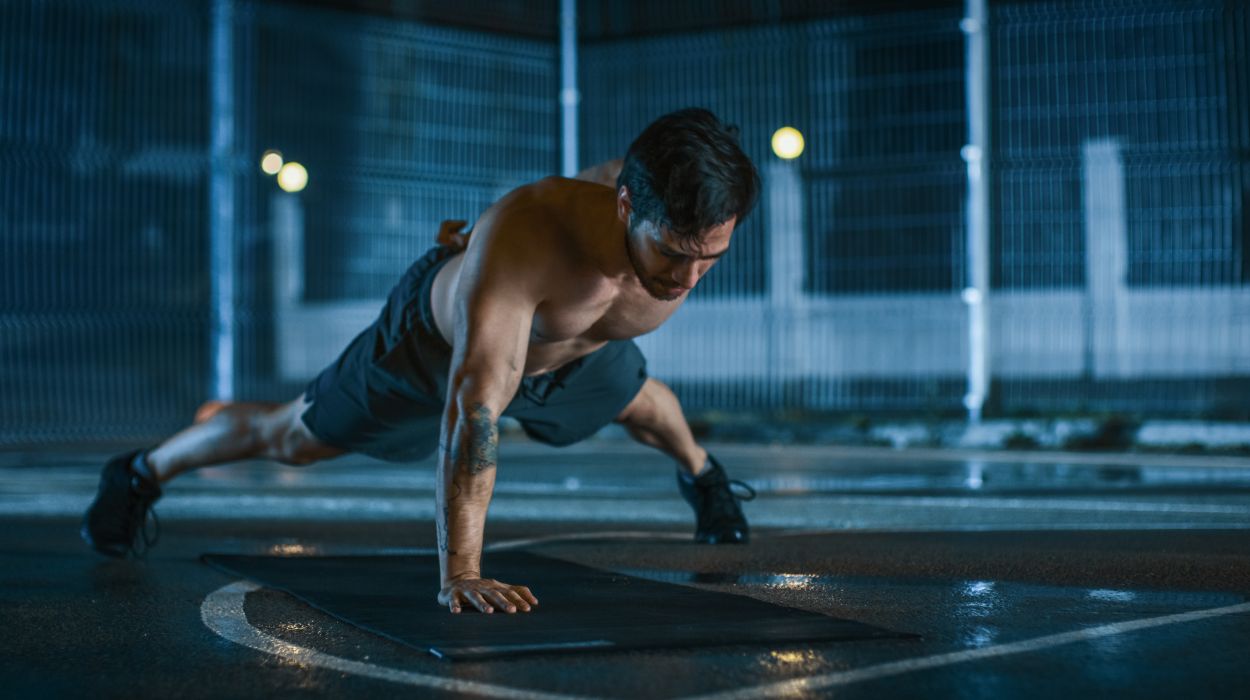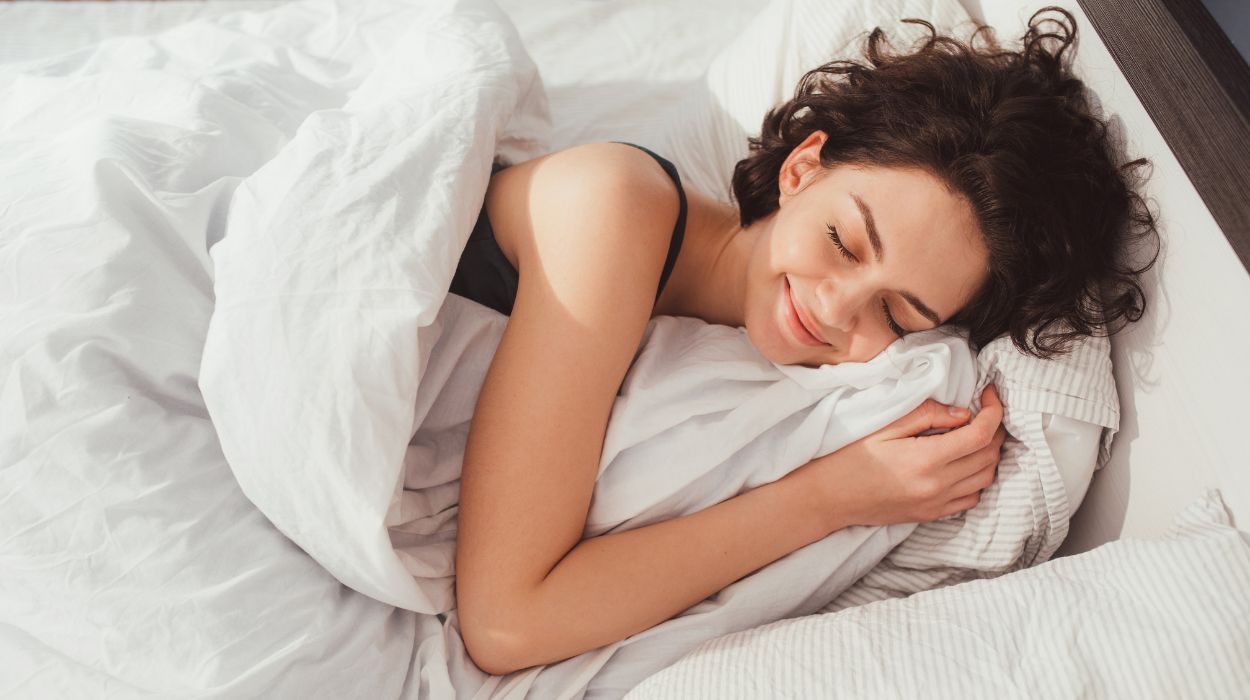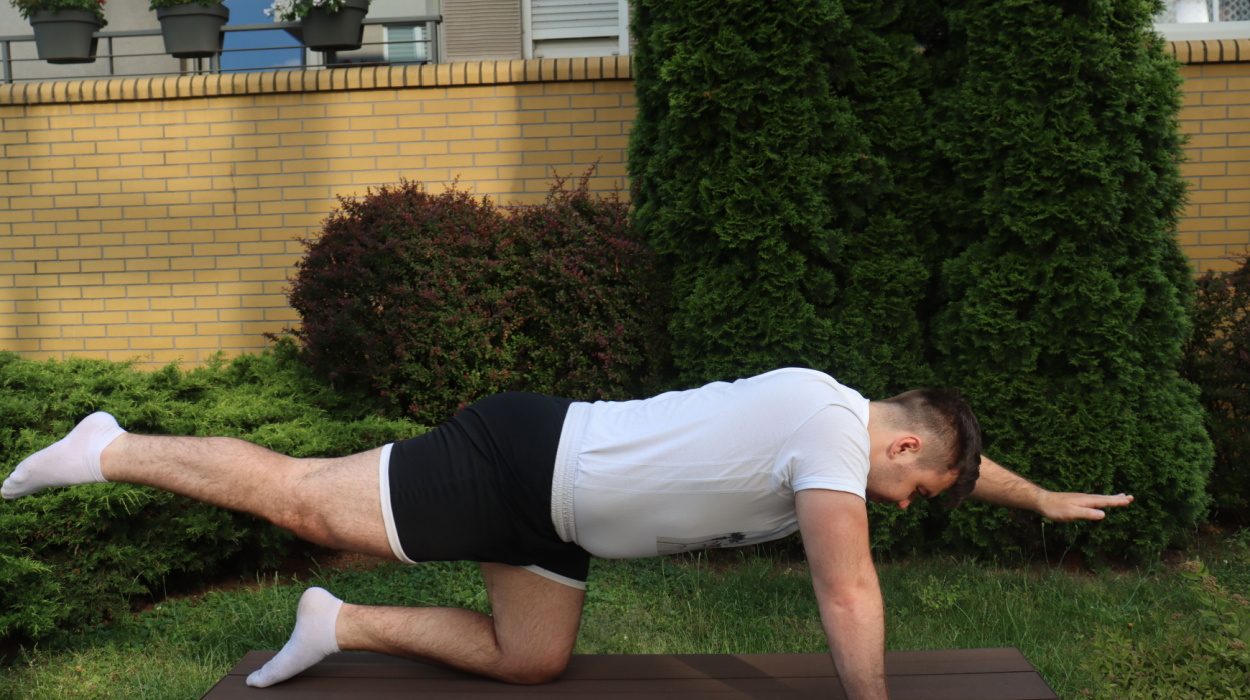Typically, society is more accepting of women with bigger butts. As a result, some women get a bigger butt through exercise or gluteal augmentation.[1] Men with large buttocks, on the other hand, are not as well-liked as women. As a result, they become self-conscious about their buttocks because society perceives them as feminine.
Such men may resort to desperate measures to lose butt fat, such as using fat burners for men or taking a supplement for weight loss. You shouldn’t rely on fat burners or supplements to understand how to shrink your buttocks. Instead, combine them with additional weight loss strategies we shall discuss shortly.
Before we get into those strategies of defining leg and butt muscles and abdominal visceral fat reduction, remember to be patient and persistent. You can’t expect to get a chiseled physique in one day, even if you use all of these tactics.
Here are five strategies of how to lose butt fat for men, according to experts.
How To Lose Butt Fat As A Man?
The most effective way for men to lose butt fat is to use tactics that lower total body weight while simultaneously targeting your rear to achieve a well-defined physique.
These strategies include:
- Exercising on a regular basis.
- Creating a caloric deficit.
- Drinking adequate water.
- Getting sufficient restful sleep.
- Maintaining consistency and motivation.
5 Ways To Lose And Shrink Buttocks Fat For Guys
If you’re wondering how to lose butt fat, you should realize that, aside from gluteal augmentation, there is no specific procedure that targets the butt. We would not recommend considering surgical surgery because it is rather expensive. Furthermore, problems such as fat clots, prolonged discomfort, or fat necrosis may occur.
That said, here are the safest strategies for how to lose buttock fat for guys naturally:
Regular Exercise

You can engage the glute muscles in various strength training routines. High-intensity interval training or HIIT, hip thrusts, squats, step-ups, lunges, and glute bridges are among the exercises to use to rid yourself of fat cells and to gain lean muscle mass.
Remember that these workouts may help you lose fat on your buttocks, but it may take some time, and the amount of time depends on how well you execute them. For example, squats should be performed cautiously due to bad posture, wrong foot alignment, and incorrect depth. Strength training exercises aren’t enough to reduce butt fat, so you must combine them with cardio exercises. Some cardio exercises you can do, include jogging, swimming, cycling, dancing, and skipping rope. For men with heart disease or hypertension, they should focus on low or moderate cardio workouts, such as brisk walking, dancing, or cycling.
Create A Caloric Deficit
A calorie deficit reduces overall body fat, including the butt. It involves consuming fewer calories than your body needs. When you consume fewer calories, you create an energy imbalance since the body needs food for fuel. As a result, your body will break down stored fat to meet its energy needs leading to weight loss.
The trick to consuming fewer calories is eating foods that fill you up. When you are full, you won’t gain weight since you won’t overeat. Generally, you should choose foods[2] with lots of fiber and water.
Some food ideas to try include steamed vegetables, nonfat yogurts, fresh fruits, sparkling water, vegetable soups, etc.
Drinking Water
Although water doesn’t directly reduce butt fat, it is still a useful drink for weight management. Water promotes satiety, which means you will consume less food due to a reduced appetite. Experts recommend drinking 500 ml or 2 cups of water[3] 30 minutes before each meal to lose weight.
Pre-water consumption leads to greater weight loss by about 2 kg than a hypocaloric diet alone.
Some men drink sodas whenever they are thirsty. Unfortunately, sodas have high calories,[4] which promote weight gain. To get the picture, an 8-ounce serving of orange crush[5] has 130 calories. On the other hand, water reduces calorie intake as it has none.
Getting Enough Sleep

If you are curious about how to make your butt smaller, getting enough sleep, 7-9 hours, is your best bet. Sufficient sleep regulates hormones[6] involved in metabolism and appetite control. Insufficient sleep disrupts hormonal balance, which causes an increased appetite and hunger cravings. As a result, you will become obese from overeating.
After doing some vigorous exercises, your glute muscles will need some time for recovery and growth. Luckily, sleep supports their growth, repair, and overall strength development through protein synthesis and hormonal regulation. Thanks to enough rest, you will get to your desired body shape.
Staying Consistent And Motivated
If you are interested in butt fat loss for guys at home, high degrees of consistency and motivation are necessary. At home, you are likely to slack off. To avoid that, have a trusted friend or relative to hold you accountable whenever you don’t put any effort into losing weight.
Sometimes you will get negative feedback from them, but you should see it as a form of love, not hate.
Exercises can be boring and tiresome, causing you to put less effort. However, there are things you can do to make them enjoyable. For instance, you could play some music while you work out. Or you could get a friend to join you.
Common Causes Of Developing Butt Fat In Men
Butt fat stems from the accumulation of excessive subcutaneous fat. The accumulation of fat affects the shape and size of the butts. These changes in shape will vary among individuals based on the following factors:
Poor Diet
A poor diet has excessive calories. Examples of high-calorie foods include ice cream, candy, chips, baked goods, soda, etc. If you don’t consume fewer calories than your body can burn, it will store excess energy as fat. That means your body will store fat throughout your body, including the butts.
Moreover, high-calorie foods don’t necessarily contain essential nutrients like complex carbohydrates, lean proteins, and fiber. Without these nutrients, you will be hungrier due to imbalanced blood sugar levels. As a result, you will overeat and potentially gain weight.
Genetics
Genetics affects an individual’s body shape and fat distribution system. For instance, men with a pear-shaped body[7] tend to accumulate fat in the butts than those with an apple-shaped figure. A pear-shaped figure is a sign the man has a lot of estrogen.
The impact of estrogen in humans is sex-specific. In women, estrogen promotes the distribution of fats[8] for reproductive purposes.
Also, some men are born with a genetic predisposition to store more fat in the butts compared to other body parts. A genetic characteristic that causes butt fat is steatopygia,[9] and it commonly affects the Khoisan men of Southern Africa. It causes the butts to have a more protruding and rounded appearance.
Sedentary Lifestyle
A sedentary lifestyle causes weight gain by decreasing your overall calorie expenditure. That means your body burns fewer calories as you’re mostly inactive. The slow burning of calories makes you gain fat rapidly, including in your butts. Another danger of leading a sedentary lifestyle is experiencing muscle atrophy[10] in the gluteal muscles. Muscle atrophy refers to the weakening of the muscles due to inactivity. When your muscles become weak, they cannot use energy to maintain themselves. By not using energy from burning calories, you may gain weight.
Aging
As men age, their hormonal levels change, leading to a decline in testosterone.[11] Testosterone helps to regulate fat distribution in the body. A reduction in testosterone levels due to age means that at some point, you’ll start gaining weight all over your body, including the buttocks.
Aging also causes your body’s metabolism to slow down. With a slow metabolism, men burn few calories at rest. As a result, they are likely to gain weight quickly. Therefore, older men must always try to engage in physical activities to lose weight.
Stress
There are many indirect ways stress causes butt fat. Stress boosts cortisol levels. Cortisol is a hormone that regulates stress responses.
At high levels, it can lead to increased cravings[12] for high-calorie unhealthy foods that cause obesity.
Various individuals manage their stress in different ways. Some people resort to emotional eating to cope with stress. The problem with emotional overeating is that such people usually eat high-calorie foods without monitoring their calorie intake. Needless to say, such foods cause weight gain in the butts and the rest of the body.
Conclusion
If you have been curious about how to lose butt fat for men, the tips above might help. Once you follow the tips consistently, you may no longer have to worry about people looking at you. Then again, some men don’t mind the attention.
Losing butt fat isn’t easy and takes time. Of course, some people will market supplements and gluteal augmentations as quick ways of losing butt fat. However, these methods of losing weight tend to be expensive. Additionally, supplements do not cause drastic weight changes due to their limited effect on metabolism.
The surest way to reduce butt fat is by staying committed to a healthy lifestyle. Be patient and always stick to your weight loss goals to increase your chances of success.
Frequently Asked Questions
You can reduce the size of your butt by focusing on exercises that target the gluteal muscles, such as squats, lunges, glute bridges, and hip thrusts.
Although squats shape and build glute muscles, they do not reduce your butt. Instead, they make your buttocks appear firmer and more lifted. To reduce your butt, you must do a combination of exercises while eating a balanced, hypocaloric diet.
Yes, but you must combine it with a proper diet and a combination of other exercises. Walking is a low-impact aerobic exercise that cannot burn excess calories on its own.
To lose butt fat, you must eat foods containing balanced macronutrients, that is, proteins, carbohydrates, and healthy fats. Remember to include fiber-rich foods.
There is limited and contradictory evidence regarding their effectiveness in reducing fat. Also, supplements don’t consider individual variations such as genetics, metabolism, and lifestyle.
Since no exercise targets only the butt, you should focus on overall weight loss. The time it takes to lose weight depends on factors such as exercise routine, genetics, and body composition.
Liposuction is only necessary when stubborn fat pockets don’t respond to diet and exercise. Consult with a qualified plastic surgeon or healthcare professional for expert advice.
While exercise is significant in reducing butt fat, there is some degree of fat you can lose without it. Some ways you can lose butt fat sans exercise include calorie control, hydration, portion control, and stress management.
 Evidence Based
Evidence Based
